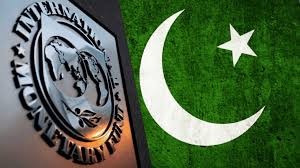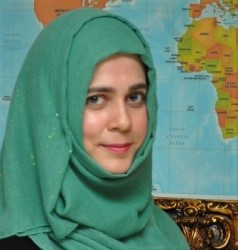by Hadiqa Mir 5 August 2023
The recent delay in IMF bailout has again emphasized on the diversification of the market options and need of economic indigenization of Pakistan. The pessimistic analysis of the situation had always been dominated by the challenges being faced by the country, however, the strategic opportunities also need to be highlighted. The skyrocketing commodities’ prices, inflation, currency depreciation, investors’ distrust and deteriorating economic indicators are indeed a reality of Pakistan’s financial system. To unlock its stalled IMF loan programme of about $ 2 billion, Pakistan has implemented a number of economic measures, including greater taxes, higher energy prices, and the highest interest rates in 25 years, however, bold and timely decisions on part of policymakers and all stakeholders is the only way to accommodate the people suffering due to this financial turmoil.
Under its Articles of Agreement, “the IMF is responsible for promoting international monetary cooperation; facilitating the expansion and balanced growth of international trade; promoting exchange stability; assisting in the establishment of a multilateral system of payments; and providing resources available to members experiencing balance of payments difficulties”. IMF is propagated as a facilitator to promote sustainable development by the West, whereas, according to the revisionist perspective it as an instrument of the western led liberal order to subjugate the weaker states in order to achieve the political and strategic objectives. There is no denial that IMF is reality of the contemporary world, however, it is not permanent solution of the economic problems of depended states.
There is no second opinion, IMF uses its economic power to influence the internal policies of the states to serve politico-strategic agendas of the liberal world order and the states controlling it. Henceforth, the revisionist and non-status quo states have reservations over the programme and its agendas. Nevertheless, the absence of any other substitute leaves the poor countries without any concrete option except to admit to be part of the system in order to sustain their finances and follow the liberal economic agenda.
China’s deviation from the status quo and efforts to economic engagements with the underprivileged nations has always been an important competitor of western monopoly. Furthermore, in recent developments the reemergence of the bloc politics is quite apparent with China and Russia as leaders of the eastern bloc. The efforts of Saudi-Iran rapprochement by the China through track 2 diplomacy, combining them at SCO – emerging regional platform and growing ties between Russia and China in every sphere i.e. economic, geo-political and politico-strategic are demonstrations in this regard.
Furthermore, the contemporary milieu is also witnessing changing inclination of the western allies owing to the fact that west has little to offer them in comparison to the expectations. In this regard, nine members of the Organization of the Petroleum Exporting Countries (OPEC) announced the output cut of “1.2m barrels per day from May until the end of the year hence raising the price of Brent crude oil from $79.77 per barrel to $85.02 in one day. This amounts to 1.1pc of global supply”. The move signals that the leader of the OPEC – Saudi Arabia is turning its back on the West and turning to China. Consequently, Russian oil export revenues will rise from $27 billion to $145 billion this year, therefore, enabling Russia to offer more to the allies.
Furthermore, Russia also has implicit understanding that it to legitimize its acts in international environment either through the political legitimization from the international institutions or by increasing the economic outreach. In the dominant liberal world order Russia is not in position to get political support, therefore, it is engaging the world economically. Russian President Vladimir Putin has written off more than $20 billion debts owed by African nations. On the occasion Putin hinted upon the emerging multi-polar order and advocated against the neo-colonial ideology.
“The states of Africa are constantly increasing their weight and their role in world affairs, they are asserting themselves more and more confidently in politics and in the economy. We are convinced that Africa will become one of the leaders in the emerging new multi-polar world order.”
Pakistan is geo-strategically significant country for China, in the ambit of its regional interests. Furthermore, China is well aware of the fact that Pakistan’s close relations with Russia and China will neutralize the western influence in the South Asia hence creating enabling environment for China’s economic growth. CPEC is a flagship project of BRI and Pakistan has a lot to offer to China beyond CPEC. Whereas, form Russia’s perspective Pakistan being a significant country could be an important ally in the emerging new multi-polar world order. Besides it is a potential market for the Russian energy resources and there are existing bilateral agreements between the two states that have not been capitalized due to the western pressure.
The established significance of the international institutions cannot be denied, therefore, SCO can act as an important platform. Russia and China are trying to mobilize it. The inclusion of Saudi Arabia as a dialogue partner is an important development in this context.
Pakistan in this transforming global order has an opportunity to engage with China and Russia. The economic incentives brings in foreign policy compulsions, therefore, present time is the best moment to engage with the states that can serve our interests. When we are talking of engaging with China and Russia, it does not mean that Pakistan will become part of camp politics contrary to the policy guideline of NSP rather it denotes constructive relationship with all without being influenced by the other. This engagement will bring two dimensional benefits for Pakistan:-
- It will help Pakistan to diversify its economic dependency options. As currently, Pakistan’s economy largely depends on IMF bailout and loans / aids by the allies of IMF.
- As the allies of IMF pressurize Pakistan to fulfill the demands of IMF by linking their loans/ aids with the IMF bailout package. Diversification of economic options in current situation will automatically reduce the unnecessary pressure of IMF and its allies because the West would not like the geo-strategically and politico-strategically significant state to go into the opposite camp.
The task is not simple, though, as it is really hard for Pakistan to take bold decisions abruptly. Pakistani Rupee is already the cheapest currency in the region. Further increase in debts and inflation is putting burden on common man
No doubt, contemporary milieu is offering opportunities to Pakistan, however, the captilization of the opportunities depend on the political will and timely decision making. Based on cost and benefit analysis it is the ripe moment to take the decisions. The political instability and polarization is an important impediment, however, there is need to sit together to make a comprehensive plan of action to engage with Russia, China and other friends for investments rather than loans and aid. Pakistan must establish short, mid, and long-term goals for its foreign policy. Refocusing CPEC, re-initiation of blocked energy projects with Russia, Free Trade Agreements and diplomatic efforts to activate SCO platform to promote mutual interest can be really helpful.


